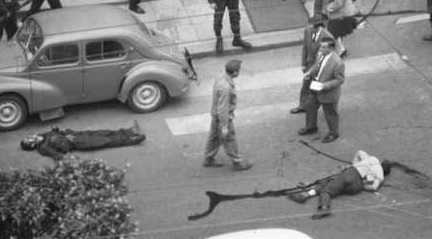
17 October 2022; MEMO: Algeria's National Liberation Front demanded yesterday that France should apologise for the massacre committed by French police against peaceful Algerian protesters in Paris in 1961, Anadolu has reported. Thousands of Algerians living in France took to the streets of Paris sixty-one years ago today to protest against a curfew imposed on them. The then French Police Commander in Paris, Maurice Papon, issued orders to suppress the protest with violence.
According to French historians, the police deliberately killed dozens of demonstrators in the streets and Metro stations and threw many of the dead and wounded protesters into the River Seine. According to Emmanuel Blanchard, this was the deadliest repression in Western Europe since World War II.
"We remember this incident, pitying the souls of our martyrs, who had been beheaded by the criminal police chief Maurice Papon and his aides, with the knowledge of President Charles de Gaulle, who kept him in office despite knowing what happened," said the National Liberation Front. "We call on the French authorities to acknowledge the events of 17 October, 1961 as a state crime and demand an apology."
The Front is the main political force in the Algerian parliament and local councils and is a member of the government coalition supporting President Abdelmadjid Tebboune. Its demand coincides with official moves between the two countries to "turn a new page" in their relations, following months of stagnation due to France's refusal to grant access to colonial era files dated from 1830 to 1962.
Last year, French President Emmanuel Macron visited Algeria and signed the "Algeria Declaration for a Renewed Partnership" that included six fields of cooperation. During the visit, Macron and Tebboune agreed to assign a joint committee of historians to resolve the issue of outstanding historical files, a move which, according to Algerian Foreign Minister Ramtane Lamamra, was intended to "keep the issue away from political exploitation."




